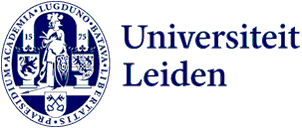Seminar
Ethnicity and endogeneity in the welfare state
- Date
- Thursday 15 June 2023
- Time
- Address
-
Kamerlingh Onnes Building
Steenschuur 25
2311 ES Leiden - Room
- A0.08
The Social Citizenship and Migration research program would like to invite you to a seminar given by Briitta van Staalduinen and Emily Wolff.
Abstract
Much of contemporary welfare state scholarship has been defined by a preoccupation with ethnic diversity. Among other consequences of globalization, new patterns of immigration are widely viewed to undermine the societal conditions that gave rise to modern welfare states. As the common refrain goes, ethnic homogeneity was a necessary precondition for the foundation and expansion of welfare state regimes; immigration, by extension, risks undoing them. Yet, this maxim rests on faulty empirical and theoretical grounds. In this review, we draw on a wide range of literatures to argue two points. First, welfare states were not founded under conditions of ethnic homogeneity. Ethnic diversity—at least as it is commonly understood in existing scholarship— not only predated welfare states, but helped to sustain them. Second, ethnic diversity is often treated as a static, coherent concept, while in theory, understandings of ethnic diversity—that is, what differences constitute ‘diversity’ and how they relate to social cohesion—are subject to a wide array of influences, including influences that emanate from welfare state institutions themselves. Ethnic diversity, we conclude, is endogenous to contemporary political economies and the welfare states that orient them.
About the program
The Social Citizenship and Migration program is one of the multidisciplinary stimulation programs at Leiden University. In the SC&M program, Leiden experts in public administration, law, economics, humanities and social and behavioural sciences look together at the issue of migration. They combine their knowledge of migration in the past, social patterns and perceptions of migrants, and share their findings with other researchers, policymakers and society at large. Find more information here.
